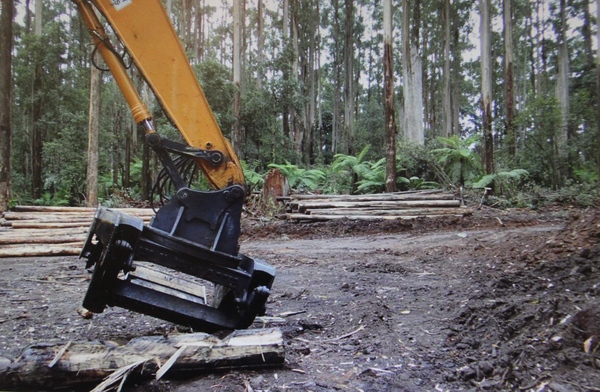Timber industry associations are seeking more clarity around native timber harvesting legislation following a recent VicForests court case.
On 27 May, the Federal Court found that VicForests failed to comply with national environmental laws designed to protect threatened species.
In the case between Friends of the Leadbeater’s Possum (FLBP) and VicForests, the court found that logging in 66 areas of habitat critical to the vulnerable Greater Glider and critically endangered Leadbeater’s Possum contravened federal law.
Justice Mortimer found that logging operations in the Central Highlands failed to comply with the Victorian Code of Practice for Timber Production, a requirement under the Regional Forest Agreement (RFA).
RFAs are the basis for the exemption of logging operations from national environment law. The non-compliance with the RFA meant the exemption did not apply and VicForests must comply with national environmental laws.
The Australian Forest Products Association CEO Ross Hampton said the livelihoods of workers around the court is at stake if the questions raised by the court decision were not urgently resolved.
“Regional Forest Agreements have been in place for more than 20 years and are required by law to be independently reviewed every five years,” he said.
“All reviews conducted have found that they are meeting or exceeding all environmental objectives while providing a level of certainty to industry.
“Native timber harvesting in Australia is done sustainably, with the equivalent of just four trees in every 10,000 across Australia’s 132 million hectares of native forest, harvested annually, and then regenerated after harvest.
“It is a highly regulated sector, complying with strict environmental protections.”
The Institute of Foresters Australia and Australian Forest Growers (IFA/AFG) president Bob Gordon said the organisation supported protection of forest species.
However, Mr Gordon said the science used as a basis for the decision needed to be tested and the law needed to be clarified.
“In making their decision, the Court appears to have looked at the impacts within discrete coupes, rather than considering the broader landscape context,” he said.
“To understand the true impact of management actions, they must be re-looked at as part of a bigger-picture perspective which takes into account the entire landscape where they took place including the substantial conservation reserve system.
“There is extensive legislation that currently exists to how harvesting operations are undertaken in native forests, and this needs to be clarified.”
Victorian Association of Forest Industries CEO Tim Johnston also expressed his disappointment at the Court decision in a statement.
“It’s a further blow at a time when the added uncertainty of Covid-19 implications runs together with concerns about commitments to meet existing or extending Timber Supply Agreements up to 2024,” he said.
“This context means that is essential for industry that the full ramifications of the court’s ruling are assessed and communicated as soon as possible.”







